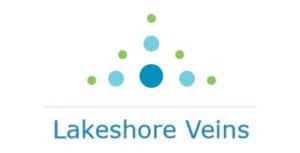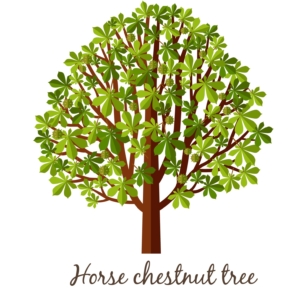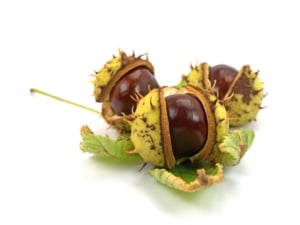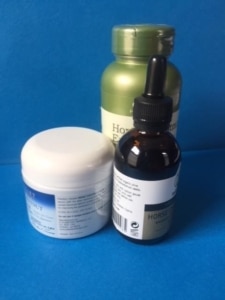Horse Chestnut for Varicose Veins
Varicose veins are a very common problem in the United States. The initial treatment for varicose veins is compression stockings. Compression stocking can be uncomfortable and many sufferers are looking for alternative treatments or natural remedies for their varicose or spider veins. Is Horse Chestnut the answer to treating varicose veins?
What is Horse Chestnut?
Horse Chestnut is a tree found throughout Europe and the United States. The part of the tree that is used in medicine is the bark from young branches and the seeds. Seeds inside the fruit are pictured below. The seeds are poisonous without processing. However, one of the chemicals found in horse chestnut seed is Aescin. It is Aescin extracted from the horse chestnut seed that may help with circulatory health.
How Does Horse Chestnut Treat Varicose Veins?
Aescin has three actions which help with symptoms of venous insufficiency
- First, it decreases edema or swelling. In chronic venous insufficiency the increased venous pressure results in capillary leak of plasma fluid. This leak results in edema or swelling. Aescin has a “sealing” effect on small vessels
- Second, it works as an anti-inflammatory. Aescin works on the cellular level to reduce release of inflammatory mediators
- Finally, it increases venous tone. Normal vein walls have smooth muscle which will contract when exposed to Aescin.
Does Horse Chestnut really work to treat Varicose Veins?
Probably yes. Randomized studies in which horse chestnut extract is compared with a placebo (sugar pill) show a significant improvement in pain. In addition, most of the studies also show an improvement in swelling. However, there is also a study of venous stasis ulcer patients which showed no improvement with Aescin. Therefore suggesting, Horse Chestnut is less effective with advanced disease.
There are so many different preparations of Horse Chestnut, which one is best?
- The pill form is the form most studied. Creams and lotions have limited skin absorption and are therefore not recommended
- Look for the active ingredient Aescin. The dosage of Aescin is around 100-150mg per day split in 2 doses. Here is where some math comes in. If the preparation says 300 mg of Horse Chestnut and the percentage of Aescin is 20%, that is 60 mg of Aescin per pill.
- There is no regulation of dietary supplements. Therefore, look for a supplement made using Good Manufacturing Practices (GMP).
So, Horse Chestnut works, why not use it?
- Use of Horse Chestnut is only recommended for short term use – up to 6 months. Since chronic venous insufficiency is a long-term problem use of Horse Chestnut only delays needing a more permanent fix.
- Horse Chestnut does not appear to work in advanced disease. Vessel wall damage occurs in advanced disease and fibrous tissue replaces the muscles. Therefore, increasing venous tone and preventing leaks may not be possible with a drug.
- Aescin will help the symptoms of chronic venous insufficiency. The swelling, pain, and itching which accompanies varicose veins. Aescin does not necessarily improve the appearance.
- Aescin is a drug. Even though it is a supplement and it comes from nature, it is synthesized to an active compound and is a drug. This is like opium and other narcotics which are synthesized from poppy seeds. Additionally, it is like aspirin originally synthesized from willow bark. So, like all drugs, you should discuss the use with your physician.
Bottom Line
For short term use, Horse Chestnut extract does help with symptoms of chronic venous insufficiency. However, Horse Chestnut extract will not help with advanced disease. In addition, Horse Chestnut extract is a drug. Consult your physician before use.
References
Pittler, MH, Ernst E. Horse-chestnut seed extract for chronic venous insufficiency. A criteria-based systematic review. Arch Dermatol. 1998 Nov;134(11): 1356-1360
Brunner F, Christine H, Schuller-Petrovic, S. Responsiveness of human varicsoe saphenous veins to vasoactive agenst. Br J Clin Pharmacol. 2001 Mar;51(3):219-224.
Leach MJ, PincombeJ, Foster G. Clinical efficacy of horsechestnut seed extract in the treatment of venous ulceration. J Wound Care, 2006 Apr,15(4):159-167.
Sirtori C. Aescin: Parmacology, pharmocokinetics and therapeutic profile. Pharmacological Research. 2001, 44(3) 183-193.






